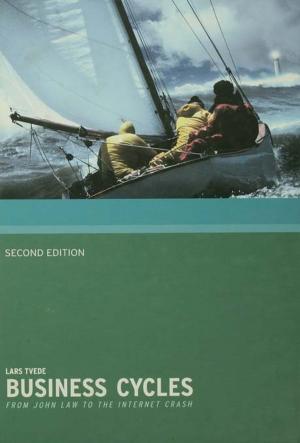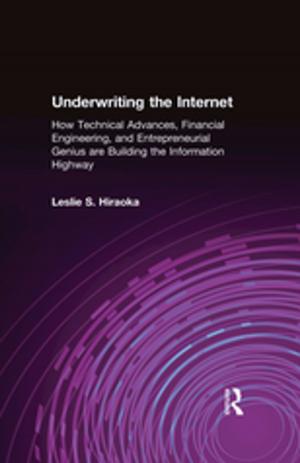Money
What It Is, How It’s Created, Who Gets It, and Why It Matters
Business & Finance, Economics, Macroeconomics| Author: | Sergio M. Focardi | ISBN: | 9781315391045 |
| Publisher: | Taylor and Francis | Publication: | March 19, 2018 |
| Imprint: | Routledge | Language: | English |
| Author: | Sergio M. Focardi |
| ISBN: | 9781315391045 |
| Publisher: | Taylor and Francis |
| Publication: | March 19, 2018 |
| Imprint: | Routledge |
| Language: | English |
By enabling the storage and transfer of purchasing power, money facilitates economic transactions and coordinates economic activity. But what is money? How is it generated? Distributed? How does money acquire value and that value change? How does money impact the economy, society?
This book explores money as a system of "tokens" that represent the purchasing power of individual agents. It looks at how money developed from debt/credit relationships, barter and coins into a system of gold-backed currencies and bank credit and on to the present system of fiat money, bank credit, near-money and, more recently, digital currencies. The author successively examines how the money circuit has changed over the last 50 years, a period of stagnant wages, increased household borrowing and growing economic complexity, and argues for a new theory of economies as complex systems, coordinated by a banking and financial system.
Money: What It Is, How It’s Created, Who Gets It and Why It Matters will be of interest to students of economics and finance theory and anyone wanting a more complete understanding of monetary theory, economics, money and banking.
By enabling the storage and transfer of purchasing power, money facilitates economic transactions and coordinates economic activity. But what is money? How is it generated? Distributed? How does money acquire value and that value change? How does money impact the economy, society?
This book explores money as a system of "tokens" that represent the purchasing power of individual agents. It looks at how money developed from debt/credit relationships, barter and coins into a system of gold-backed currencies and bank credit and on to the present system of fiat money, bank credit, near-money and, more recently, digital currencies. The author successively examines how the money circuit has changed over the last 50 years, a period of stagnant wages, increased household borrowing and growing economic complexity, and argues for a new theory of economies as complex systems, coordinated by a banking and financial system.
Money: What It Is, How It’s Created, Who Gets It and Why It Matters will be of interest to students of economics and finance theory and anyone wanting a more complete understanding of monetary theory, economics, money and banking.















